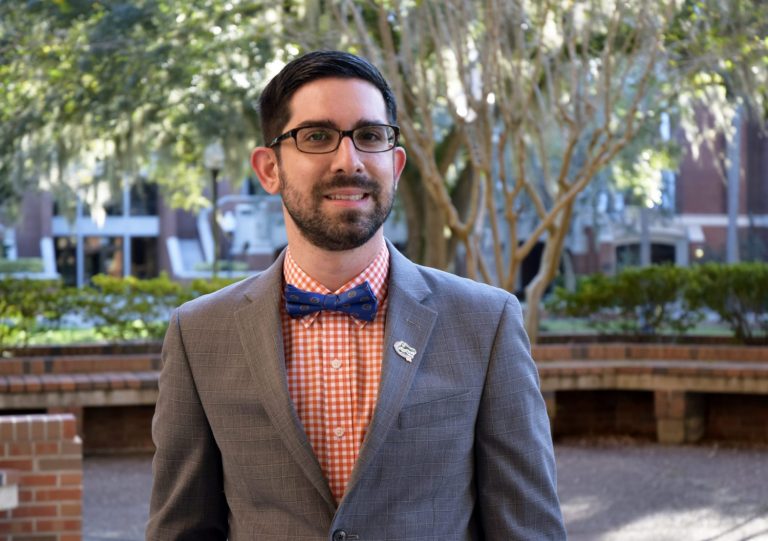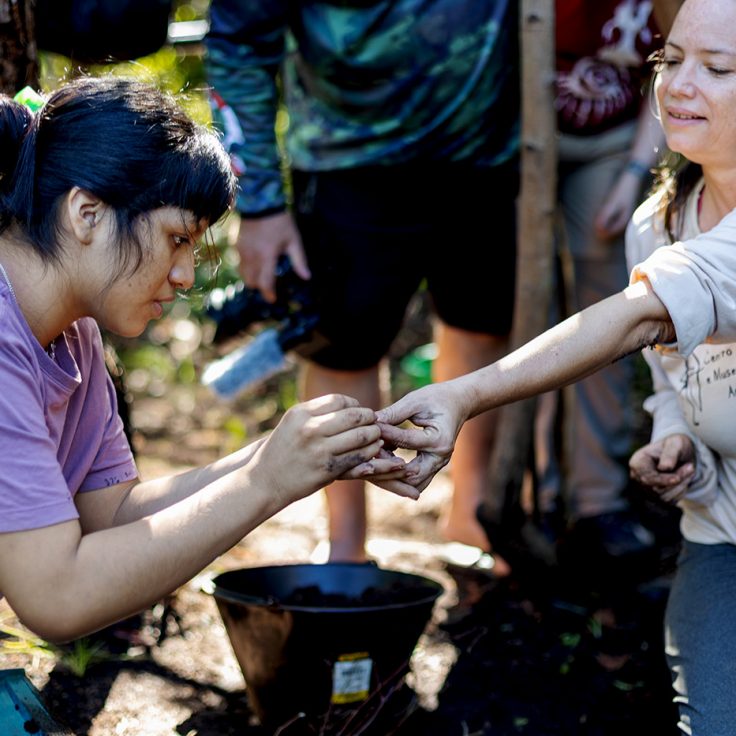
Maxim/Adobe Stock
UF Psychologist to Collaborate on NIH Award to Address Miami-Dade County Health Disparities
The project will allow Roberto L. Abreu and his team to expose gaps and community barriers in LGBTQIA+ care
The National Institutes of Health (NIH) has awarded a transformative 5-year, $6 million award to a collaborative team of researchers, including UF psychologist Roberto L. Abreu. This significant funding, through NIH’s Community Partnerships to Advance Science for Society (ComPASS) Program, will spearhead innovative research endeavors focused on eliminating health disparities within the Sexual and Gender Minority (SGM) communities of Miami-Dade County, Florida. The project’s primary goal is to assess healthcare and equity initiatives, with a particular emphasis on the intergenerational SGM population, which encompasses LGBTQIA+ individuals and their healthcare needs.
As project research co-investigator and UF principal investigator, Abreu will engage in close collaboration with a consortium of community and academic partners on this vital project. He joins forces with Urban Health Partnerships, Inc. (UHP), a non-profit organization dedicated to addressing health disparities and promoting wellness among marginalized populations, with a strong commitment to serving the needs of SGM individuals. Abreu will also partner with Karina Gattamorta, a research associate professor at the University of Miami, to advance the project’s objectives and research initiatives. Community partners, SAVE Foundation, and the Health Council of South Florida will also play a pivotal role in prioritizing the perspectives and experiences of LGBTQIA+ individuals within Miami-Dade County.
“I am excited to model for the younger generation of researchers and community leaders ways in which research skills are used to center the experiences of those who are most marginalized,” said Abreu.
Andrea Iglesias, Chief Executive Officer and Executive Director at UHP, expressed her enthusiasm regarding this significant achievement, “This award represents a transformative opportunity to leave a lasting imprint on the health and well-being of our Miami-Dade LGBTQIA+ community,” she said. “We are wholeheartedly dedicated to addressing the underlying factors contributing to health inequities alongside our partners and with community voices as our guide.”

According to Abreu, LGBTQIA+ people are systematically excluded and marginalized in multiple spaces, including within the Miami-Dade County community. Extensive research has shown that this exclusion has significant detrimental health consequences for these populations.
“Our community-centered project not only aims to dismantle these health disparities but, at its core, acknowledges that LGBTQIA+ people are an integral part of Miami-Dade County,” said Abreu.
Addressing health inequities is a monumental task, said Abreu, and collaboration is essential. One of the project’s key strengths lies in its close collaboration with the SGM communities in Miami-Dade County. Over the course of the decade-long initiative, Abreu will work in partnership with local stakeholders to develop place-based interventions tailored to address identified barriers and disparities within SGM communities.
The project team is keenly aware of the importance of community input and engagement in shaping the research. This inclusive approach ensures that the project remains both relevant and impactful to the communities it aims to support.
“Dismantling systems of oppression that systematically harm LGBTQIA+ people across the lifespan must take a collective approach,” said Abreu. “This collaboration is one that seeks to maximize the strength of each member, and one that recognizes that when we all contribute in meaningful ways, change can happen and wellness for LGBTQIA+ people is possible.”
The team’s primary focus is to evaluate the availability of resources, identify barriers to access, and address gaps in data collection within Miami-Dade County, with a core objective of providing tailored recommendations to improve health outcomes.
Abreu’s undertaking aligns with the NIH’s goals of advancing science for the benefit of society. This collaborative project speaks to a deep commitment to addressing health disparities within the LGBTQIA+ communities of Miami-Dade County and signifies the potential for positive change in the pursuit of health equity and inclusivity.
“A healthy and prosperous Miami-Dade is one that creates a safe environment for its LGBTQIA+ members,” said Abreu.
The ComPASS program is funded by the NIH Common Fund and managed collaboratively by NIH staff from the Common Fund; National Cancer Institute; National Institute of Mental Health; National Institute on Minority Health and Health Disparities; National Institute of Nursing Research; National Heart, Lung, and Blood Institute; and NIH Office of Research on Women’s Health, with many of the NIH Institutes Centers and Offices providing input and participating in program development and management. The project can be found under Award Number 1OT2OD035935-01.


